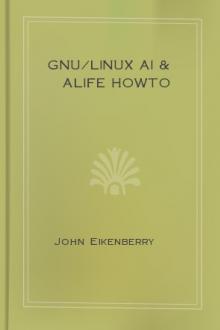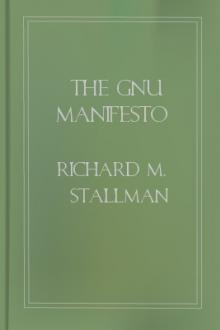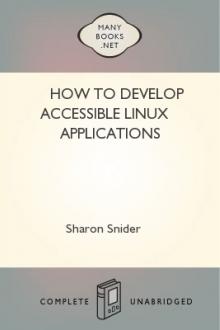Genre Computers. Page - 2

When you get tired of hunting for a job, why not relax withHUMOR at [email protected]. This mailing list distributeshumor of all types, topics and tastes. To subscribe, send thefollowing command to the LISTSERV:
SUB HUMOR [firstname] [lastname]
Chapter 6: Your personal HealthNet==================================
Health is a concern in most families. Where a family member or afriend is suffering from cancer, AIDS, a serious disability, or arare disease, finding help is imperative.
Fortunately,

asingly set up to give absentee operators control over the peopleactually using the computer system.
The SPA, which actually stands for Software Publisher's Association,is not today an official police force. Unofficially, it acts likeone. It invites people to inform on their coworkers and friends; likethe Clinton Administration, it advocates a policy of collectiveresponsibility whereby computer owners must actively enforce copyrightor be punished.
The SPA is currently threatening small Internet service providers,demanding they permit the SPA to monitor all users. Most ISPssurrender when threatened, because they cannot afford to fight back incourt. (Atlanta Journal-Constitution, 1 Oct 96, D3.) At least oneISP, Community ConneXion in Oakland CA, refused the demand and wasactually sued. The SPA is said to havedropped this suit recently, but they are sure to continue the campaignin various other ways.
The university security policies described above are not imaginary.For example, a

passes through his body. He, and us, are released from our torture.
In this passive and mysterious medium, when we are brought into a state of vicarious tension, we are more likely to swallow whichever pill and accept whatever solution that the storyteller offers.
Interactivity: the birth of resistance
Interactive media changed this equation. Imagine if your father were watching that aspirin commercial back in 1955 on his old console television. Even if he suspected that he was watching a commercial designed to put him in a state of anxiety, in order to change the channel and remove himself from the externally imposed tension, he would have to move the popcorn off his lap, pull up the lever on his recliner, walk up to the television set and manually turn the dial. All that amounts to a somewhat rebellious action for a bleary-eyed television viewer. To sit through the rest of the commercial, however harrowing, might cost him only a tiny quantity of human energy until the pills come out of

pter every few days throughout its E-Mail system as a combination of security aware- ness and employee 'perc'. Try it; it works and your employees will appreciate it. Why? Because they'll all talk about it - bringing security awareness to the forefront of discussion.
FEES
Distribution for up to 100 people on a single network: $ 500 (Includes 1 Year subscription to "Security Insider Report.")
Distribution for up to 1000 people on a single network: $ 3000 (Includes 10 1 Year subscriptions to "Security Insider Report.")
Distribution for up to 2500 people on a single network: $ 6250 (Includes 1 Year electronic Corporate site license to "Security Insider Report.")
Distribution for up to 5000 people on a single network: $ 10000 (Includes 1 Year electronic Corporate site license to "Security Insider Report.")
Distribution for up to 10000 people on a single network: $ 15000 (Includes 1 Year electronic Corporate site license to "Security Insider Report.")
Distribution f

ic and symbolic constraints. Together, these two levels augment Common Lisp with practically all of the functionality of both Prolog and constraint logic programming languages such as CHiP and CLP(R). Furthermore, Screamer is fully integrated with Common Lisp. Screamer programs can coexist and interoperate with other extensions to Common Lisp such as CLOS, CLIM and Iterate.
SPASS
· Web site: spass.mpi-sb.mpg.de
SPASS: An Automated Theorem Prover for First-Order Logic with Equality
If you are interested in first-order logic theorem proving, the formal analysis of software, systems, protocols, formal approaches to AI planning, decision procedures, modal logic theorem proving, SPASS may offer you the right functionality.
ThoughtTreasure
· Web site: www.signiform.com/tt/htm/tt.htm
ThoughtTreasure is a project to create a database of commonsense rules for use in any application. It consists of a database of a little over 100K rules and a C API to integ

mendment doctrines of prior restraint, vagueness, and overbreadth. There are a number of potential entry points into the analysis, but the most logical is the spending clause jurisprudence in which the seminal case is South Dakota v. Dole, 483 U.S. 203 (1987). Dole outlines four categories of constraints on Congress's exercise of its power under the Spending Clause, but the only Dole condition disputed here is the fourth and last, i.e., whether CIPA requires libraries that receive LSTA funds or E-rate discounts to violate the constitutional rights of their patrons. As will appear, the question is not a simple one, and turns on the level of scrutiny applicable to a public library's content-based restrictions on patrons' Internet access. Whether such restrictions are subject to strict scrutiny, as plaintiffs contend, or only rational basis review, as the government contends, depends on public forum doctrine.
The government argues that, in providing Internet access, public libraries do not create a public

hors at length in works of non-fiction. This practice was useful, and is the only way many authors' works have survived even in part. The copyright system was created expressly for the purpose of encouraging authorship. In the domain for which it was invented--books, which could be copied economically only on a printing press--it did little harm, and did not obstruct most of the individuals who read the books.
All intellectual property rights are just licenses granted by society because it was thought, rightly or wrongly, that society as a whole would benefit by granting them. But in any particular situation, we have to ask: are we really better off granting such license? What kind of act are we licensing a person to do?
The case of programs today is very different from that of books a hundred years ago. The fact that the easiest way to copy a program is from one neighbor to another, the fact that a program has both source code and object code which are distinct, and the fact that a program is used ra

Using a Modem
*Appendix C. Technical Details of an Internet Connection
Appendix D. Just Enough UNIX
Appendix E. The Ten Best Things To Get If You Only Have E-Mail
<Chapter 1> The Past and Future of Internetworking
There is an old fashioned way to connect with other computers and shareinformation and there is a modern way. It is helpful to compare the twomethods briefly in order to make contact with methods you may alreadyknow and to show off the advantages of using the Internet.
The old fashioned (ca. 1980) method of making contact with othercomputers is through a bulletin board service (BBS). Bulletin boardservices grew up in the late 70s as a method for sharing software,talking, playing games, etc. with a personal computer. They range insize from small special interest Bulletin Boards with a local followingto giant national boards like CompuServe, GEnie, and The Source. Youaccess a bulletin board with a modem and communication software bydialing a telephone nu

2.1. Principles for Developing Accessible Applications
Developers need to consider the following needs of disabled users when developing an accessible application:
* Choice of input methods. Support should be available for various types of input, such as, keyboard, mouse and adaptive technologies. Pay close attention to keyboard navigation. * Choice of output methods. Support should be available for various types of output, such as, visual display, audio, and print. The main focus is that text labels are provided for all user interface elements and objects, graphics, and icons. * Consistency and flexibil

1. Markets are conversations.
2. Markets consist of human beings, not demographic sectors.
3. Conversations among human beings sound human. They are conducted in a human voice.
4. Whether delivering information, opinions, perspectives, dissenting arguments or humorous asides, the human voice is typically open, natural, uncontrived.
5. People recognize each other as such from the sound of this voice.
6. The Internet is enabling conversations among human beings that were simply not possible in the era of mass media.
7. Hyperlinks subvert hierarchy.